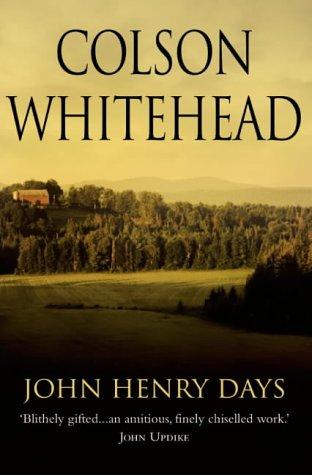ahynes1 reviewed John Henry Days by Colson Whitehead
Review of 'John Henry Days' on 'Goodreads'
4 stars
I was looking for a book by Colson Whitehead in the library. A friend had recommended The Nickel Boys, but that wasn't available. John Henry Days was available, and it caught my attention. I listened to it as an audiobook. It was very long, trying to bring in many different stories. It might have been better if some of the various stories were shortened or left out.
Yet, it pulled together themes of journalism, culture, and black history in a powerful overarching story. At times, it led me to rabbit holes, as I put down the story and read about the history of steam hammers, or racial conflict in New York City.
Find time to read this.
I was looking for a book by Colson Whitehead in the library. A friend had recommended The Nickel Boys, but that wasn't available. John Henry Days was available, and it caught my attention. I listened to it as an audiobook. It was very long, trying to bring in many different stories. It might have been better if some of the various stories were shortened or left out.
Yet, it pulled together themes of journalism, culture, and black history in a powerful overarching story. At times, it led me to rabbit holes, as I put down the story and read about the history of steam hammers, or racial conflict in New York City.
Find time to read this.

